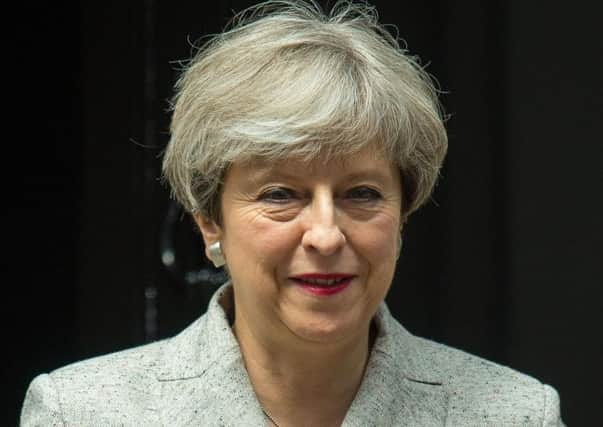May faces backlash over DUP deal as critics demands extra cash for Yorkshire


Details of an agreement between the parties emerged this morning, including revelations that the Tories had agreed to maintain winter fuel payments and increase infrastructure funding.
Both Mrs May and DUP leader Arlene Foster defended the deal, with the Prime Minister arguing it served the interests “of the whole United Kingdom”.
Advertisement
Hide AdAdvertisement
Hide AdBut opponents accused Mrs May of throwing millions of pounds at the Northern Irish party in a “grubby attempt” to prop up her weakened government.
“This Tory-DUP deal is clearly not in the national interest but in May’s party’s interest to help her cling to power,” said Labour leader Jeremy Corbyn.
“The government must immediately answer two questions: Where is the money for the Tory-DUP deal coming from, and will all parts of the UK – not just devolved nations but regions like Yorkshire as well – receive the much needed additional funding that Northern Ireland will get as part of the deal.
“Austerity has failed. Cuts to vital public services must be halted right across the UK, not just in Northern Ireland.”
Advertisement
Hide AdAdvertisement
Hide AdDowning Street has been in discussions with the DUP about a possible confidence and supply arrangement for over a fortnight.
A deal was finally confirmed yesterday, with Ms Foster revealing that her party had been offered an additional £1bn of funding for health, education and infrastructure over the next two years.
Mrs May has also agreed to drop plans to introduce means-testing for winter fuel allowance and to ditch the pensions triple lock.
A manifesto commitment to move to a double lock guarantee in 2020 was expected to save the government billions of pounds.
Advertisement
Hide AdAdvertisement
Hide AdIn exchange for these concessions, the DUP’s 10 MPs will back the government in crucial votes on the Queen’s Speech and the Budget.
They will also give their support to the Government’s Brexit legislation and bills relating to national security over the course of this Parliamentary session.
Announcing the deal, Mrs May claimed it would provide “certainty” throughout the Brexit process, while allowing her Government to “build a stronger and fairer society”.
But she also stressed her commitment to upholding the conditions of the Good Friday Agreement, and to working with all Northern Irish parties to restore a power-sharing executive at Stormont.
Advertisement
Hide AdAdvertisement
Hide Ad“I welcome this agreement which will enable us to work together in the interest of the whole United Kingdom,” she said yesterday.
“The agreement makes clear that we remain steadfast to our commitments as set out in the Belfast Agreement and its successors, and in governing in the interests of all parts of the community in Northern Ireland.”
The leaders of the other devolved nations were among the first to express their outrage at the deal, with the Welsh First Minister Carwyn Jones described the payment as a “straight bung to keep a weak Prime Minister and a faltering Government in office”.
Scottish First Minister Nicola Sturgeon dubbed it “the worst kind of pork-barrel politics”, while accusing the Tories of undermining the principles of the Barnett formula.
Advertisement
Hide AdAdvertisement
Hide AdReacting to a statement in the Commons, a number of MPs demanded greater transparency over where the money was coming from.
Others, including Dewsbury MP Paula Sherriff, asked whether additional money would be made available for their local communities and public services.
Lib Dem leader Tim Farron accused Mrs May of “throwing cash “ at the DUP “in a grubby attempt to keep her Cabinet in No 10”.
While IPPR North director Ed Cox urged ministers to ensure all English regions have the funding they need “to unlock their potential”.
Advertisement
Hide AdAdvertisement
Hide AdAlex Wild of the Taxpayers Alliance said the public “resent politicians cooking up deals behind closed doors that invariably end with their cash being thrown wherever is politically advantageous”.
“The unfair way in which money is allocated between the home nations has been clear for decades,” he added.